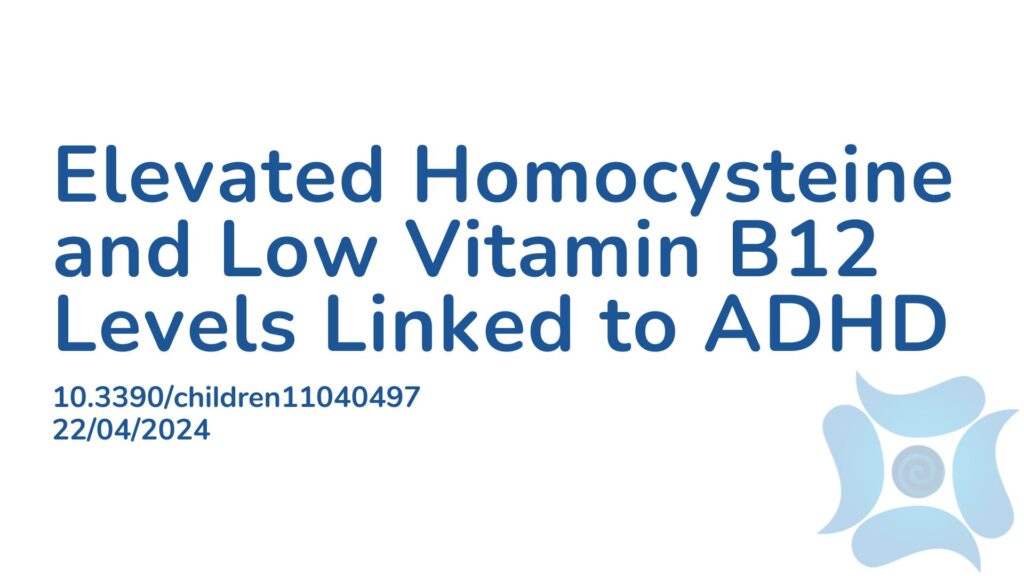Summary:
ADHD (Attention Deficit Hyperactivity Disorder) is a common neurodevelopmental disorder. People with ADHD often face challenges like academic struggles, social difficulties, and an increased risk of other mental health conditions. Diagnosing ADHD involves gathering information from parents, teachers, and health professionals. Treatment usually includes medication and behavioral therapy, but medications can have side effects such as sleep problems and appetite loss. Recent studies suggest a link between ADHD and imbalances in certain nutrients and vitamins, including elevated homocysteine levels and deficiencies in vitamin B12, folate, vitamin D, and iron. These nutrients play important roles in brain function, and their deficiencies may contribute to ADHD symptoms. Given that first-line treatments can cause undesirable side effects, exploring more natural treatment options is important for people with ADHD. This study focused on 133 boys aged 6.5 to 12.5 years, comparing those with ADHD to healthy controls. It measured levels of homocysteine, vitamin B12, vitamin D, iron, and ferritin in their blood to see if there was a correlation between these biomarkers and the severity of ADHD symptoms. The goal was to better understand how these nutritional compounds might contribute to ADHD and to explore alternative ways of managing the disorder. The findings revealed that patients with ADHD had higher homocysteine levels and lower vitamin B12 levels compared to the healthy control group. Statistical analysis suggested that homocysteine could be a useful indicator for diagnosing ADHD. These results indicate that elevated homocysteine and reduced vitamin B12 may serve as potential biomarkers for ADHD diagnosis and prognosis.
Abstract:
The current diagnosis of attention deficit hyperactivity disorder (ADHD) is based on history, clinical observation, and behavioral tests. There is a high demand to find biomarkers for the diagnosis of ADHD. The aim of this study is to analyze the serum profiles of several biomarkers, including homocysteine (Hcy), vitamin B12, vitamin D, ferritin, and iron, in a cohort of 133 male subjects (6.5–12.5 years), including 67 individuals with an ADHD diagnosis based on DSM-V criteria and 66 age-matched healthy boys (healthy controls, HC). Assessments for ADHD included the Iowa Conners’ Teacher Rating Scale (CPRS) and the ADHDT test, as well as cognitive assessments using the Wechsler Intelligence Scale for Children-Revised (WISC-R) and the TROG-2 language comprehension test. Hcy and iron were quantified using spectrophotometry, while vitamin B12 and total 25-hydroxy vitamin D levels were determined using an electrochemiluminescence immunoassay (ECLIA) and ferritin was measured using a particle-enhanced immunoturbidimetric assay. The results showed significantly increased Hcy levels and decreased vitamin B12 levels in ADHD patients compared to HCs. Multiple logistic regression analysis indicated that Hcy is a potential prognostic indicator for ADHD. These results suggest that elevated homocysteine and decreased vitamin B12 may serve as markers for the diagnosis and prognosis of ADHD.
Article Publication Date: 22/04/2024
DOI: 10.3390/children11040497



